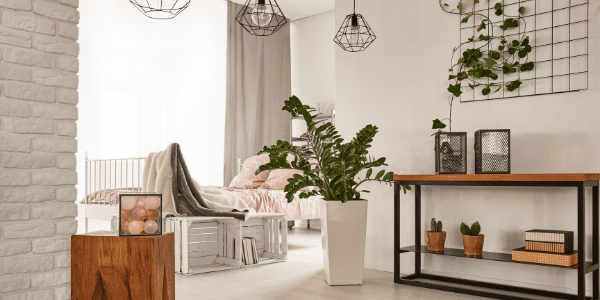How to Budget for Your First Apartment

Looking for a new apartment can be really exciting. But, sometimes it can be hard to know where to get started. How much can you afford to spend? What costs are associated with an apartment? Your first time renting an apartment can come with lots of unexpected costs. Knowing how to budget for your first apartment will help you fully plan for your move.
Set a Monthly Apartment Expenses Budget
First, set the monthly total you plan to pay for rent. Based around the 50-30-20 rule, 50% of your after-tax income should go to necessities. This includes rent, utilities, food, cell phone, car, etc. Rent should make up around 30% of this piece of your budget. If you have an expensive car payment or student loan, consider lowering it to around 25%. So, if you make $3,000 a month, aim to spend between $750-900 a month on rent. Many landlords will require your monthly income to be 2-3 times monthly rent to qualify, so keep that in mind when looking.
Set a Utilities Budget
Make sure to consider utilities when setting your apartment budget. Some utilities may be covered by your landlord or management company, so make sure to check. In general, you may need to plan for gas, electricity, water, cable & internet, and possibly trash. To be safe, aim to budget about 10% of your monthly income for utilities. Once you’re settled in and know what to expect, you may be able to adjust this.
Set a Moving Budget
Budget for the small expenses that come up when moving. If this is your first apartment, budget for essentials like furniture and household items. To save a bit of money, consider looking for used furniture on Facebook Marketplace, yard sales, or at thrift stores. Make sure to also budget for a larger-than-usual grocery bill as you will need to stock up on everything. You will also need to plan for a deposit of one month’s rent, application fees, moving fees, and a pet fee if that applies to you.
Set a Budget for Unexpected Expenses
Sometimes things come up and you’ll have to dish out money that you didn’t plan for. Consider expenses that you haven’t thought of like your commute, public transportation, and parking prices. You may also need to dish out a bit of money for renovations. While ideally that would be taken care of by a landlord, sometimes small fixes will get done faster if you do them yourself. Set aside a few hundred dollars for any surprise expenses to ensure it doesn’t come from other sections of your budget.
Looking for more moving tips? Sign up for our once-monthly blog newsletter!





